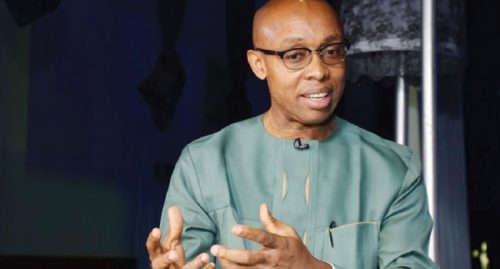Stockbrokers Urge Urgent Reforms to Achieve $1trn Nigerian Economy

Stockbrokers under the Chartered Institute of Stockbrokers (CIS) have urged the Federal Government to implement urgent economic reforms that would reposition the Nigerian capital market as a central pillar in the country’s quest to achieve a $1 trillion economy.
The call was made in a communiqué issued after a one-day workshop in Abuja, themed “Capital Formation in Nigeria: Empowering Industry, Institutions, and Markets to Drive a $1 Trillion Economy”. The event brought together policymakers, industry leaders, financial experts, and market operators to chart a path for Nigeria’s economic transformation.
According to the CIS, Nigeria’s $1 trillion target is achievable but requires deliberate, coordinated policies to deepen capital formation, attract sustainable investment, and build resilience across key sectors. The communiqué, signed by CIS Chairman Oluropo Dada and Registrar/CEO Ayorinde Adeonipekun, highlighted the urgency of harmonising fiscal, trade, and monetary policies to strengthen investor confidence and unlock long-term capital inflows.
Foreign Direct Investment (FDI), which should be a critical driver, has remained volatile and below potential, undermined by currency instability, regulatory unpredictability, and weak infrastructure. The brokers emphasised that mobilising domestic capital through pensions, insurance, and retail investors remains largely untapped despite Nigeria’s large savings potential.
“Integrating Nigeria’s vast informal sector into the formal economy would unlock significant domestic capital while expanding the tax base,” the CIS stated. “Currently, the economy is overly dependent on debt financing, while venture capital and private equity remain limited. This is unsustainable for a country targeting rapid industrialisation and inclusive growth.”
The Institute further observed that a strong appetite for government securities, reflected in frequent oversubscription of bonds, underscores investors’ readiness to commit funds when credible instruments are provided. However, Nigeria has yet to fully leverage its diaspora community. Well-designed financial products tailored to diaspora remittances could add billions of dollars annually to the economy.
The CIS also called for sustained transparency in foreign exchange management, insisting on a unified FX system that guarantees liquidity and allows foreign investors to repatriate capital seamlessly. “A consistent, market-driven FX framework is crucial to rebuilding confidence in Nigeria’s investment climate,” the communique noted.
On infrastructure financing, the brokers recommended a strong public-private partnership (PPP) framework as the only viable solution to bridge Nigeria’s estimated $100 billion annual infrastructure gap. They also called for a national savings strategy to mobilise idle domestic capital and channel it into productive sectors such as manufacturing, technology, and renewable energy.
The Institute urged regulators to streamline approval processes for innovative products, particularly in fintech, to encourage faster integration and adoption. It recommended scaling up financial instruments such as Real Estate Investment Trusts (REITs), venture capital funds, and other structured products to attract diverse classes of investors, including millennials, Gen Z, and diaspora Nigerians.
“The Nigerian capital market has the potential to serve as the engine room of economic transformation,” the CIS said. “But this requires coordinated policy action, bold reforms, and unwavering commitment to transparency. Without these, Nigeria risks missing the $1 trillion economy aspiration.”
Industry analysts said the Institute’s recommendations, if implemented, would not only diversify capital inflows but also reduce Nigeria’s reliance on debt and foreign aid, creating a more sustainable growth trajectory.











